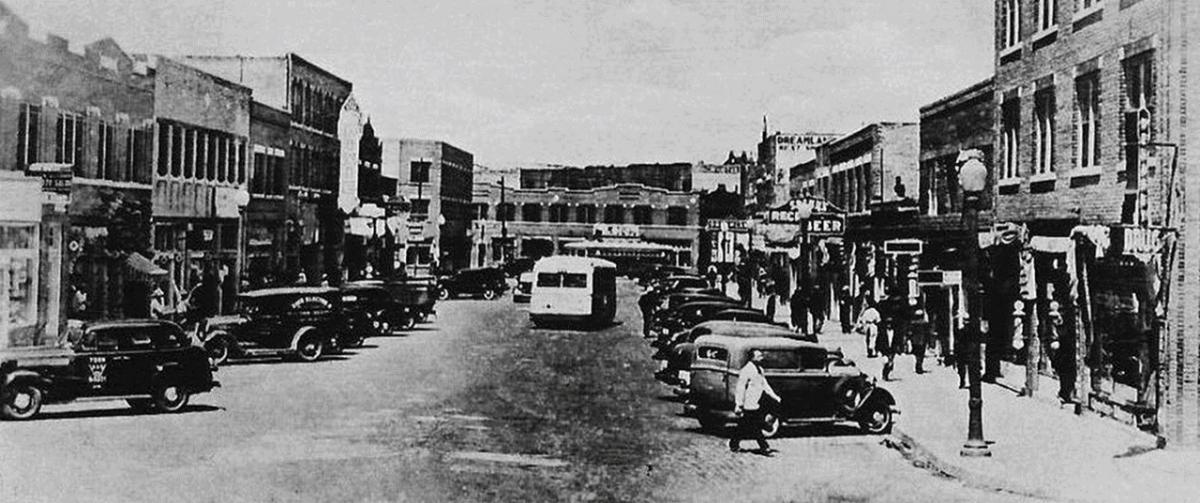Remembering 'Black Wall Street'
Wells Fargo participates in national recognition of the 1921 Tulsa Race Massacre with grant supporting economic empowerment efforts.

Remembering 'Black Wall Street'
Many have recently become aware that this year’s Memorial Day weekend also marks the centennial of a historic attack on U.S. soil. African American lives, homes, and businesses were destroyed in sweeping acts of violence during a 16-hour period in Tulsa, Oklahoma, now known as the “Tulsa Race Massacre,” “Tulsa Race Riot of 1921,” or the destruction of “Black Wall Street.”
The historical event took place in the then-thriving Greenwood neighborhood near downtown Tulsa, where a self-sustaining African American population had built businesses, livelihoods, and a community, including its own doctors, schools, theaters, churches, and shops. Among the Black and African American leaders and intellectuals attracted to the area was author and educator Booker T. Washington, who gave it the moniker “Black Wall Street,” noting its economic success.
The violence that razed the area started when an African American man believed to be innocent was jailed, and about 75 African American men, including World War I veterans, appeared at the courthouse to protect him from a growing lynch mob. After a skirmish where shots were fired, law enforcement deputized white Tulsa residents, who launched an armed attack, including machine guns, arson, and an aerial assault, on Greenwood. Up to 300 African Americans are believed to have died, and the Greenwood economy was leveled.
Wells Fargo had no physical presence in the city at the time, but today has nearly 200 employees in the area, led by its Wells Fargo Advisors and Commercial Banking lines of business. As part of an ongoing, intentional commitment to social and racial equity, the company is participating in the national recognition and commemoration of the event through a grant to the 1921 Tulsa Race Massacre Centennial Commission. The grant aligns with similar efforts the bank has underway to rebuild the legacy of Black Wall Street in our communities, such as the recent $50 million investment in minority-owned depository institutions, or MDIs.
The 1921 Tulsa Race Massacre Centennial Commission is working to leverage the history surrounding the events of 100 years ago by developing programs, projects, and events to commemorate and inform. Their work centers on remembering the victims and survivors, and once again fostering sustainable entrepreneurship within the Greenwood District of Tulsa.
Oklahoma Senator Kevin Matthews established the Centennial Commission in 2015 to commemorate history, tell the whole Greenwood story, and create opportunity. Efforts underway include establishing the Greenwood Rising history center, dedicated to the history of the Greenwood District, and an entrepreneurship plan that will address issues facing African American entrepreneurs of Tulsa today, including lack of access to technical assistance, resources, and capital.
“The Commission believes that building Greenwood Rising is long overdue as our community, our city, state, and nation have never been fully told the stories of this tragedy and triumph that our survivors and descendants wanted to share,” said Phil Armstrong, a project director for the Centennial Commission.
The foundation grant from Wells Fargo & Company invests in the commission’s economic empowerment efforts directly impacting the Black and African American small business community, as well as the capital campaign to support the history center and other community development and education efforts.
Over Memorial Day weekend and in the days that follow, the commission is presenting virtual and in-person events with an educative and commemorative focus, including a musical performance by artist John Legend and a keynote speech by political leader Stacey Abrams.
“Wells Fargo joins the nation in commemorating the Tulsa Race Massacre. Through its support of the Centennial Commission and the Greenwood Rising history center, the company hopes to raise awareness around the events of 1921, and to acknowledge the Greenwood community’s legacy and resilience. And Wells Fargo & Company aims to continue to build on Tulsa’s vibrant future by addressing gaps and disparities facing Black business owners,” said Tim Cors, Oklahoma & Northwest Arkansas market leader for Wells Fargo Advisors.

